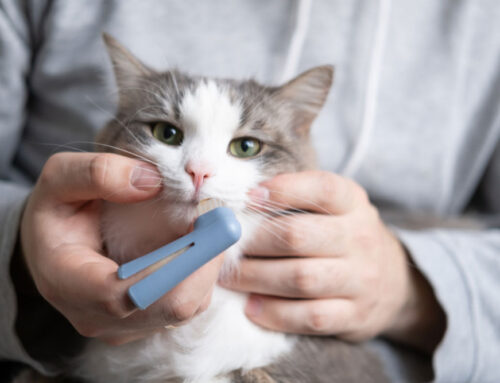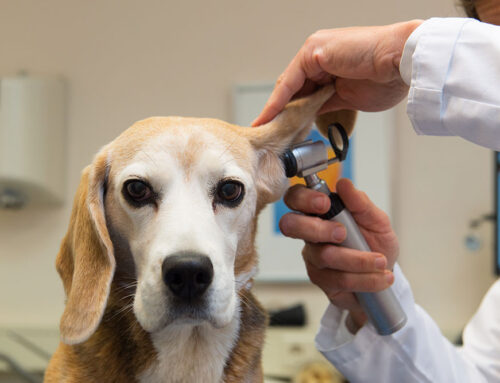Knowing exactly when your pet needs veterinary attention is a difficult judgment, as most cats and dogs are excellent at hiding illness and pain. However, keeping an eye out for subtle differences can help you recognize that your pet has a problem. To decide if your four-legged friend needs expert veterinary care, refer to this list of pet problems compiled by our Palm City Animal Medical Center team.
Your pet’s eating or drinking habits have changed
Your pet’s appetite and thirst are major indicators of their internal health. While you may not notice any external issues, you know your furry pal has a problem if their eating or drinking habits change. Changes can be gradual and difficult to spot, or sudden, which indicates an acute problem.
If your pet’s appetite has dropped off, they may be in pain, suffering from a dental issue, or nauseous. If they are suddenly voracious, hyperthyroidism, diabetes, or a nutritionally incomplete diet may be to blame.
Pets who become uncontrollably thirsty often have an underlying kidney, urinary, or endocrine issue that is causing dehydration and the need to drink more. Chronic renal failure and diabetes are two important diseases you should consider if your pet is thirstier than usual.
Your pet’s urination or defecation habits have changed
Changes in your pet’s urination and defecation habits often go hand-in-hand with their appetite and thirst. After all, what goes in, must come out. If your pet is exceptionally thirsty, they should urinate more, while a hungry pet should defecate more. However, if your pet’s output no longer matches their input, they may have an issue with their urinary or gastrointestinal (GI) tracts.
Common urinary issues in pets include changes in frequency and the amount of urine produced, inappropriate urination inside the home, or discolored urine. Cloudy, pink-tinged urine can indicate a urinary tract infection, while inappropriate elimination can indicate various problems, from diabetes, to osteoarthritis, to cognitive dysfunction.
Common defecation issues in pets can vary from diarrhea to constipation. Pets can suffer from an upset stomach because of something they ate, and then diarrhea until they pass the offending item. Or, a pet may eat an inedible object and become constipated.
Your pet’s activity level has changed
If your normally active pet is moping around and refusing to play their favorite game, a plethora of problems could be the cause. Limping, avoiding stairs and furniture, and overall less activity may mean your pet has an orthopedic or neuromuscular issue, or they may simply feel unwell. On the other hand, an older pet who becomes restless and unable to settle, particularly at night, may have developed cognitive dysfunction or generalized anxiety.
Your pet is vomiting
An occasional vomiting episode typically isn’t cause for concern, but when repeated—whether over hours or months—your furry pal needs veterinary care. Pay close attention to important information about your pet’s vomiting episodes, so you can provide the veterinarian with the essential details, including:
- How frequently your pet is vomiting
- The color of your pet’s vomit
- If your pet’s vomit contains digested food
- How long after eating that your pet vomits
- If your pet vomits after eating a specific food or treat
If your pet vomits several times in a short time frame, cannot keep food or water down, has a fever, or shows other illness signs, contact your nearest emergency veterinary hospital for urgent treatment before their condition worsens.
Your pet isn’t acting normal

You know your pet best. If your furry pal simply isn’t acting quite right, you are the one who will most likely detect an abnormality, and you should schedule a comprehensive workup for your pet. A change in your pet’s ear position, a strange look in their eye, or a subtle behavior change can all be clues other people likely would not spot. These minute differences can indicate an early-stage disease, and noticing such tiny changes in your pet can provide the prompt diagnosis and treatment they need. So, you may wonder if you are being overly concerned or paranoid about your pet’s health, but we think you can never be too cautious about your four-legged friend.
While subtle changes in your pet’s behavior or routines may seem like no big deal, they can indicate a hidden underlying problem. If you are unsure if your furry pal needs veterinary attention, give our Palm City Animal Medical Center team a call to discuss your concerns and for our advice.








Leave A Comment